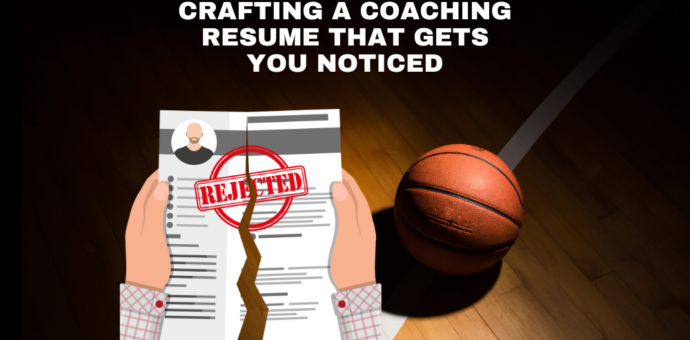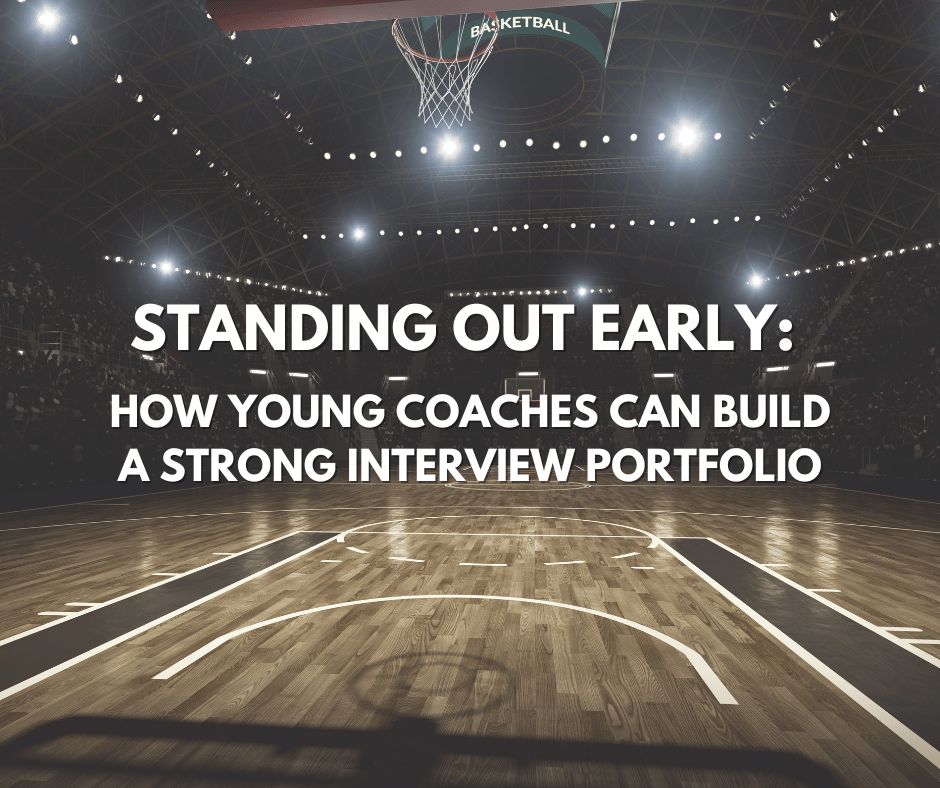Written By: Bill Vasko – CEO, XO Coach & The Coaching Portfolio
If you need help with your coaching resume, your portfolio, or the interview process, be sure to sign up for one of our job prep packages at The Coaching Portfolio! We provide services that assist with all aspects of the job search process for coaches. Click here to get started today!
Introduction
A well-constructed coaching resume is essential for getting noticed in the competitive sports job market. It should be more than just a list of past positions; it needs to highlight your skills, achievements, and unique value as a coach. This article will guide you through the essential elements of crafting a resume that stands out and lands you interviews.
1. Understanding the Purpose of a Coaching Resume
A coaching resume serves as a marketing tool that communicates your qualifications, experience, and suitability for a coaching role. It’s your first impression, so it needs to quickly convey why you’re the right fit for the position. Your resume should focus on what makes you unique and provide evidence of your success in previous roles.
2. Structuring Your Coaching Resume
An effective resume should follow a clear and organized structure. Here’s a recommended format:
- Header:
Include your name, contact information, LinkedIn profile link, and any relevant social media handles (if they are professional and focused on your coaching career). - Skills and Expertise:
Include a section that outlines your core competencies, such as “Player Development,” “Recruiting,” “Game Strategy,” or “Team Leadership.” Use keywords relevant to the job you’re applying for but expand upon each skill beyond just a generic term. - Coaching Experience:
List your coaching positions in reverse chronological order (most recent first). For each role, include:- Position Title and Organization:
Clearly state your role and the name of the team, school, or organization. - Dates of Employment:
Include the month and year you started and ended each role. - Key Responsibilities and Achievements:
Use bullet points to detail your duties and accomplishments. Focus on quantifiable outcomes (e.g., “Led team to three consecutive championship appearances” or “Increased athlete retention by 20%”).
- Position Title and Organization:
- Education and Certifications:
Include relevant degrees, coursework, and any coaching certifications (e.g., CPR certification, sport-specific certifications). If you’re pursuing a degree or certification, note that it is “In Progress.” - Professional Development:
List any clinics, workshops, or courses you’ve attended. This section demonstrates your commitment to ongoing growth as a coach.
3. Tips for Writing an Effective Coaching Resume
To make your resume stand out, follow these best practices:
- Tailor Your Resume for Each Job Application:
Customize your resume to match the specific requirements of the position. Highlight the experiences and skills most relevant to the job description. - Use Action Verbs:
Start each bullet point with an action verb, such as “Developed,” “Led,” “Implemented,” or “Coached.” This approach creates a more dynamic and engaging resume. - Quantify Achievements:
Whenever possible, include numbers to highlight your impact. For example, “Increased team GPA by 15%” or “Secured $10,000 in funding for new equipment.” - Focus on Results, Not Just Responsibilities:
Employers want to see the outcomes of your work, not just a list of tasks. Explain how your actions contributed to team or program success. - Limit Your Resume to One or Two Pages:
For most coaching positions, a one-page resume is sufficient. If you have extensive experience, a two-page resume is acceptable, but make sure the most critical information appears on the first page.
4. Common Mistakes to Avoid
Even small errors can hurt your chances of landing an interview. Here are common pitfalls to avoid:
- Using a Generic Resume for Every Job:
Avoid sending the same resume for multiple job applications. Tailor it to each role to demonstrate your genuine interest. - Including Irrelevant Information:
Focus only on coaching-related experiences and skills. Leave out unrelated work history unless it demonstrates transferable skills. - Using Too Much Jargon:
While sports terms may be familiar to you, avoid overloading your resume with jargon. Make it accessible to hiring committees who may not be experts in your specific sport. - Listing Duties Instead of Achievements:
Don’t just list what you did; explain the results of your efforts and how they positively impacted the program or athletes. - Neglecting the Design and Format:
A poorly formatted resume can be off-putting. Use consistent font styles and sizes, and keep margins and spacing uniform.
5. Creating a Digital Coaching Resume
In today’s job market, a digital resume can enhance your traditional application:
- PDF Format:
Save your resume as a PDF to maintain its formatting and ensure compatibility across devices. - Include Hyperlinks:
If you’re sharing a digital copy, add hyperlinks to your LinkedIn profile, portfolio, or any media coverage that features your work. - Consider Creating a Personal Website:
A personal website can serve as an expanded resume and portfolio, showcasing videos, practice plans, or articles you’ve written about coaching.
6. Submitting Your Coaching Resume
When applying for coaching positions, follow these tips:
- Send Your Resume Directly to Athletic Directors or Coaches:
If possible, email your resume to the hiring decision-makers instead of using a general job portal. This direct approach can increase your chances of being noticed. - Accompany Your Resume with a Strong Cover Letter:
Your cover letter should complement your resume, providing context for your achievements and explaining why you’re interested in the position. - Follow Up After Submitting Your Application:
Sending a polite follow-up email can demonstrate your interest and initiative.
Conclusion
Crafting a resume that gets you noticed requires attention to detail, customization, and a focus on results. By structuring your resume effectively, highlighting key accomplishments, and avoiding common mistakes, you can significantly increase your chances of securing coaching interviews. Remember, your resume is often your first impression—make it a strong one.
If you need help with your coaching resume, your portfolio, or the interview process, be sure to sign up for one of our job prep packages at The Coaching Portfolio! We provide services that assist with all aspects of the job search process for coaches. Click here to get started today!






